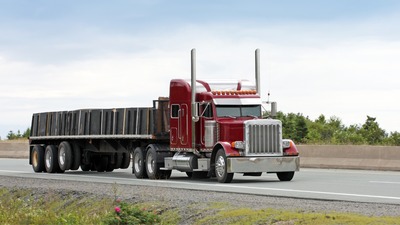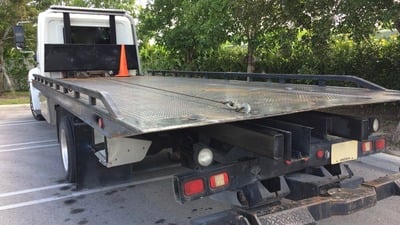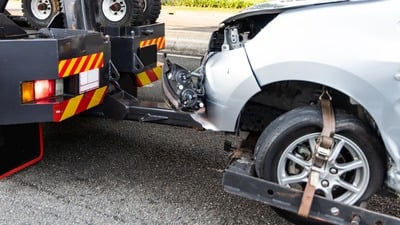Introduction to Cargo Bars and Their Importance for Truckers
Cargo bars are essential tools for truckers, ensuring that the load stays put during transport. Think of them as the sturdy hand that keeps everything in place, preventing shifting that can lead to damaged goods or, worse, accidents. These bars are adjustable, fitting snugly between the walls of the truck's trailer, making them versatile for various load sizes. With cargo bars, truckers can drive with confidence, knowing their cargo won't move around, ensuring safety and peace of mind. For truckers, investing in high-quality cargo bars isn't just about safeguarding the goods they're transporting; it's about committing to road safety and efficiency in their job.
What Are Cargo Bars?
Cargo bars, also known as load locks, are essential tools for truckers. They're adjustable bars that ensure cargo doesn't shift or move around in the back of a trailer during transport. Typically made from steel or aluminum, cargo bars are easy to adjust and can fit across various trailer widths. How they work is simple: you extend the bar until it’s snug against the walls of the trailer, then lock it in place. This pressure prevents cargo from tumbling or sliding, reducing the risk of damage to the goods and keeping the driver safe from shifting loads. Whether you're hauling a full load or just a few items, having a reliable cargo bar is a must for every trucker.
The Role of Cargo Bars in Ensuring Road Safety
Cargo bars are like the superheroes of trucking; they play a crucial role in keeping things safe on the road. Think of cargo bars as the muscle that holds your cargo in place, stopping it from shifting around when you're hitting those bumpy roads. When cargo moves, it can mess with the truck's stability, making it harder to steer and increasing the risk of accidents. Plus, if stuff starts tumbling out on the road, it becomes a hazard not just for you but for everyone else out there. Using cargo bars means you're taking a big step towards preventing these kinds of mess-ups. They're easy to use and seriously effective. By locking your load in securely, you ensure that the weight distribution stays balanced. Balanced loads don't toss the truck's center of gravity out of whack, making your ride smoother and much safer. So, if you're all about keeping things safe while you're trucking along, throwing some high-quality cargo bars into your toolkit is a smart move. They're the guardians of road safety, and having them means you're doing your bit to keep not just your cargo, but also the roads, safer for everyone.
Different Types of Cargo Bars for Trucks
In the world of trucking, not all cargo bars are the same. They come in various shapes and sizes, each designed for a specific need. Let's break it down. First, we have the standard cargo bar. This is your go-to, fitting snugly across most trailer types to keep cargo from shifting. Think of it as the Swiss Army knife in your toolkit. Next up are ratchet-style cargo bars. These are a step up, offering a tighter grip and more security for your load. They work through a ratcheting mechanism, allowing for precise adjustment. Then there's the load locks category, featuring bars with pivoting feet that adjust to the sides of your trailer for an even firmer hold. Lastly, we've got the e-track and L-track bars. These are the tech-savvy cousins in the cargo bar family, designed to latch onto tracking systems inside your trailer, providing maximum stability and peace of mind. Why does this matter? Because choosing the right cargo bar means protecting your cargo, your truck, and, most importantly, yourself. It’s about making a smart investment in your toolkit that pays off on every journey.
How High-Quality Cargo Bars Protect Your Cargo
High-quality cargo bars are like the silent guardians of your truck. They work by locking your cargo in place, ensuring it doesn’t move around, slide, or bump against other items during transit. Think about driving through a bumpy road or taking a sharp turn. Without cargo bars, your load could get damaged, or worse, cause an accident. Here’s how they protect your cargo: They prevent shifting. When you’re hauling a load, the last thing you want is for it to start moving. Cargo bars act as a barrier, keeping everything firmly in place. They reduce damage. By preventing movement, cargo bars also minimize the risk of your goods being damaged. Whether it’s something fragile that could break or heavy items that could crush each other, cargo bars have got you covered. They increase safety. Secure cargo means a safer driving experience for you and everyone else on the road. Loose items can be a hazard, especially if you have to stop suddenly. In short, investing in high-quality cargo bars isn’t just about protecting your cargo; it’s about ensuring a safer, smoother journey every time you hit the road.
Cargo Bars: A Cost-Effective Solution for Truckers
Cargo bars are a trucker's best friend, and here's why. They're not just any tool but a cost-effective solution that keeps cargo secure during transit. Compared to the loss or damage of goods, the investment in good quality cargo bars is minor. Think about it: cargo shifting means delayed deliveries and unsatisfied customers, which no trucker wants. Prices for these handy tools can vary, but overall, they offer great value for their benefit. By locking cargo in place, they prevent accidents within the trailer, reducing the chances of damage to goods or the truck itself. Plus, the peace of mind knowing your load is secure? Priceless. So, when you look at it, spending a bit on cargo bars saves you a lot more down the road.
Installation and Usage Tips for Cargo Bars
Installing cargo bars is straightforward. First, choose the right size for your truck bed or trailer. Adjust the cargo bar to the desired length, usually by twisting or pulling, until it's snug between the walls of your cargo area. Make sure it's level and tight enough that it won't move under the load but not so tight that it damages the walls. To use, simply place the cargo bar near where your load will sit. This might be close to the tailgate for smaller loads to prevent them from sliding around, or closer to the cab if you're carrying more. It's about balance and preventing any movement that could lead to damaged goods or an unsafe driving situation. Most cargo bars come with rubber feet to prevent slippage and to protect the vehicle's interior from scratches. Double-check these before and after installation to ensure they're secure and not worn out. Remember, the goal is to keep everything in place while you're on the move, so periodic checks during use are a good idea, especially if you're driving on rough roads. Lastly, never use a cargo bar as the only means of securing heavy or dangerous goods. These bars are great for adding an extra layer of security and organization but always use straps or nets for heavy-duty securing. Safety first, always.
Maintenance Tips for Long-Lasting Cargo Bars
To keep your cargo bars working and in top shape, you'll want to show them some regular love and attention. It's simple, really. First, always check for any signs of wear and tear. Things like rust, cracks, or bending shouldn't be ignored. If your cargo bars are metal, a quick wipe down with a dry cloth after use can keep moisture—and rust—at bay. For those with rubber ends or grips, check for any cracks or degradation. These parts can weaken over time but are often easy and cheap to replace. Lubricating the moving parts is next. A bit of oil on the ratchet mechanism can make sure it operates smoothly. Just a few drops every couple of months will do. Don't overdo it, or you'll collect dirt and grime. Lastly, when storing your cargo bars, keep them in a dry and covered place. Moisture is the enemy here. Following these tips can help ensure your cargo bars stay sturdy and reliable, ready for any load you throw their way.
Where to Find the Best Cargo Bars for Your Truck
Finding the best cargo bars for your truck doesn't have to be a wild goose chase. It starts with knowing where to look. First off, hit up auto parts stores. They often have a range of cargo bars that fit most trucks. Don't ignore online retailers either. Websites like Amazon, eBay, and specialized trucking equipment sites offer a wide selection with reviews to guide your choice. For personalized advice, truck forums and social media groups are goldmines. Other truckers there share their experiences and can steer you towards the best picks. Remember, the right cargo bar not only secures your load but also saves you time and hassle. So, choose wisely.
Conclusion: The Essential Tool for Every Trucker's Toolkit
Cargo bars are the unsung heroes in a trucker's toolkit. Think about it; they keep your cargo secure, prevent damage during transport, and ultimately save money by avoiding loss and repairs. This isn't just about keeping things tidy—it's about ensuring safety and efficiency. Whether you're hauling across town or across the country, investing in high-quality cargo bars is investing in peace of mind. Remember, a well-secured load is a sign of a professional. Make sure you're not just another driver on the road, but a master of your craft with the right tools at your disposal.





